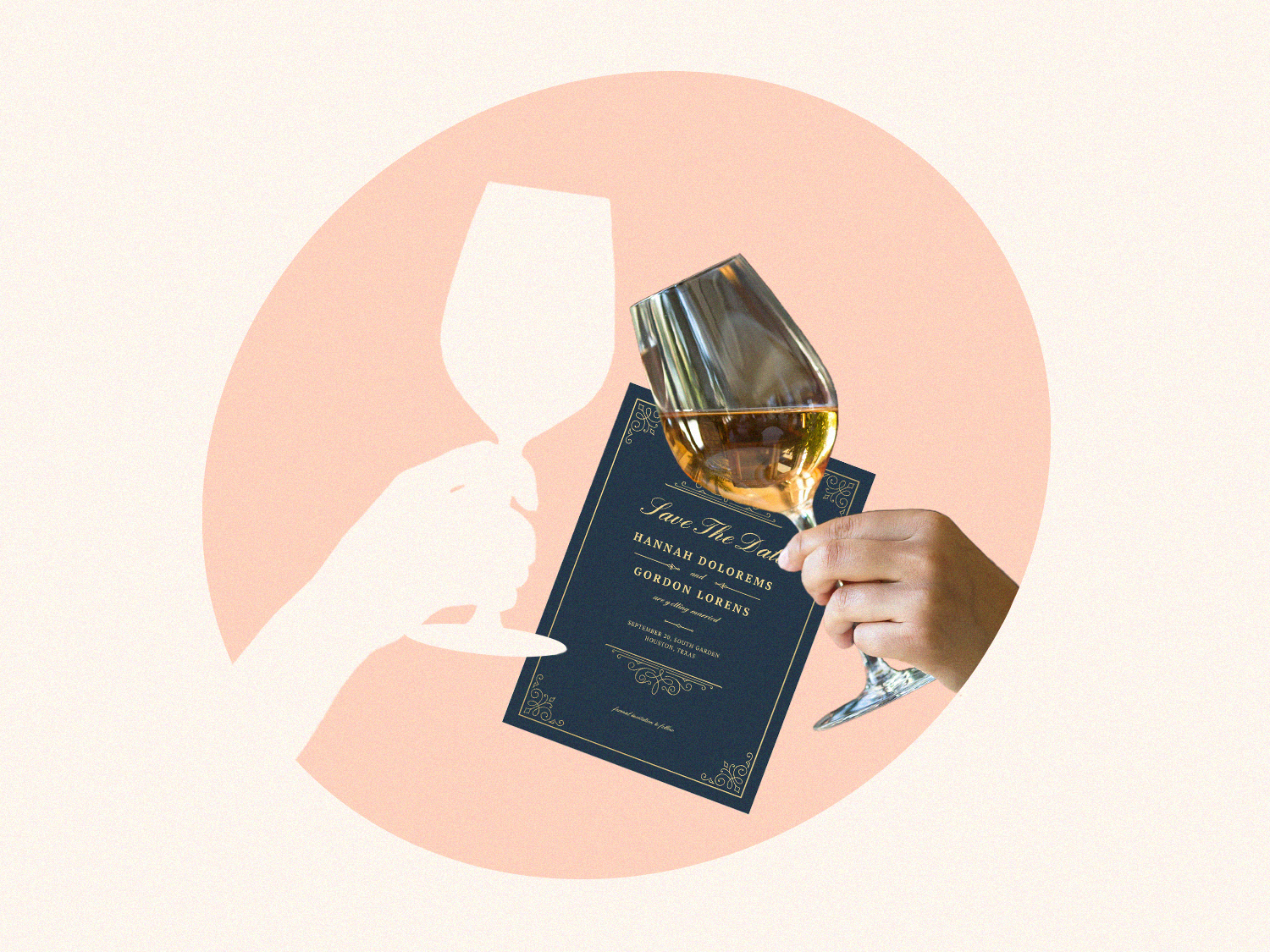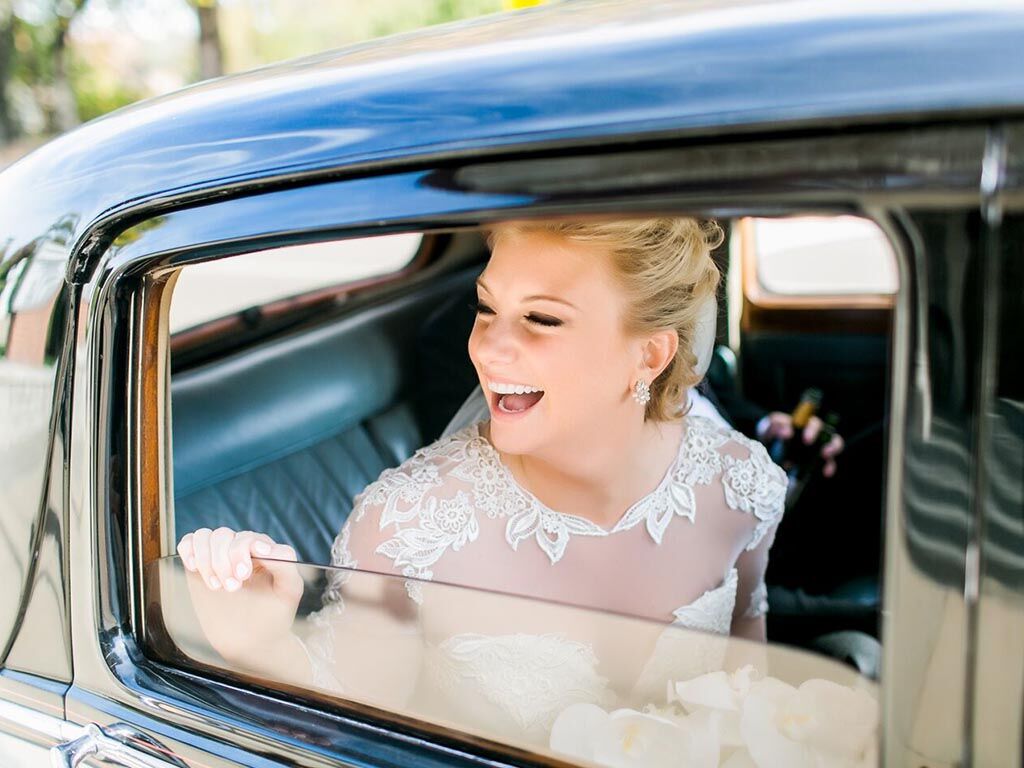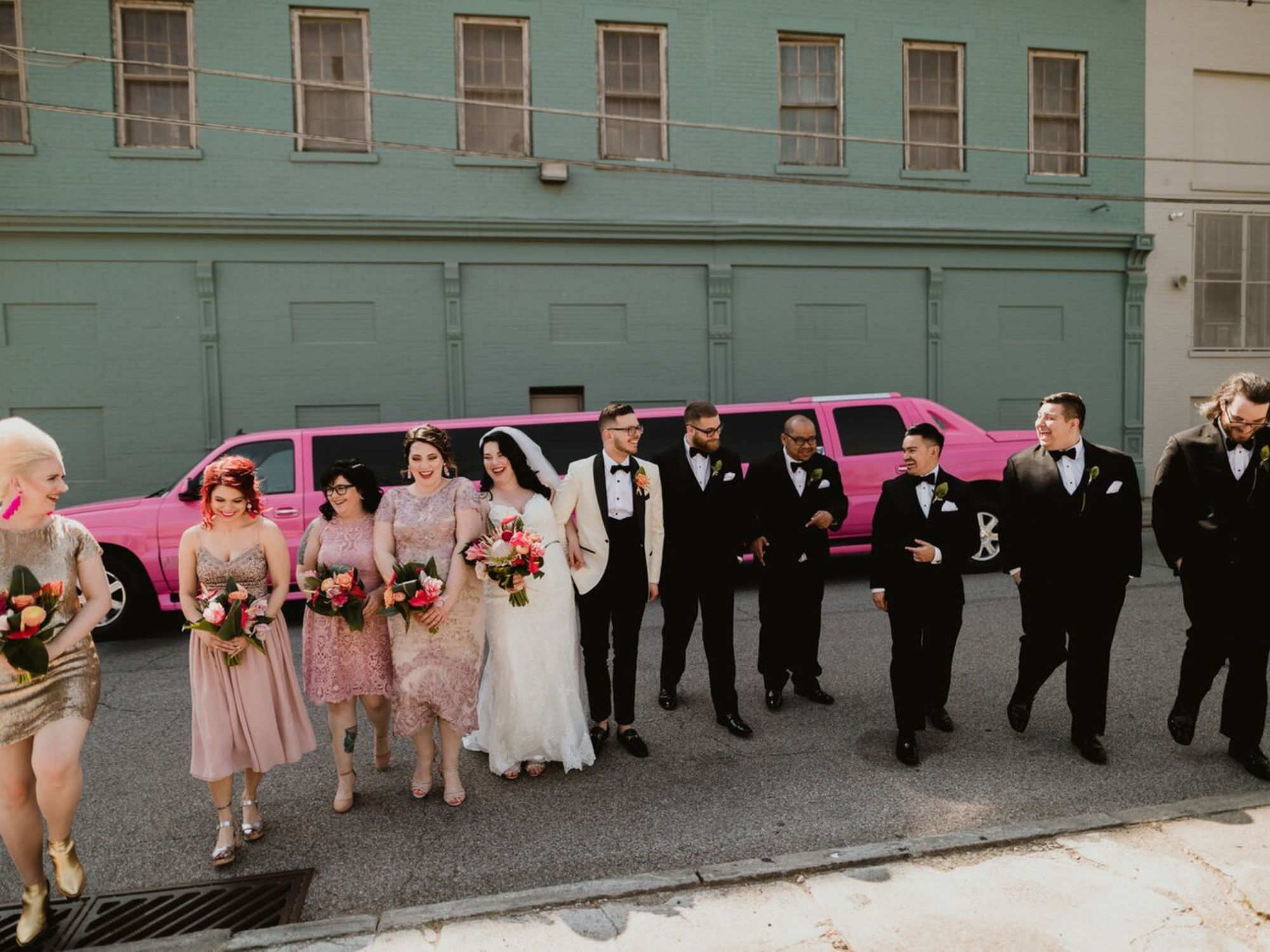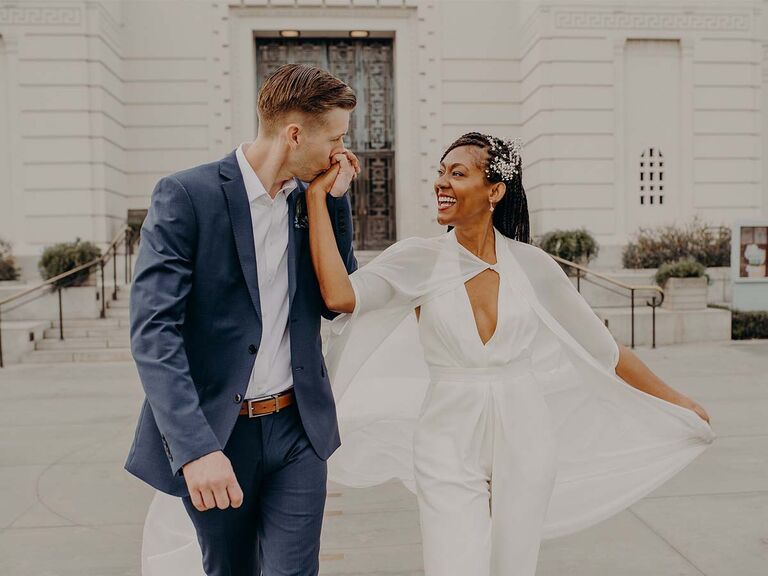Why We're So Excited for the 2022 Wedding Season (and You Should Be, Too)
In looking back at the past two years in weddings, 2020 was a year of postponements, while 2021 saw a wedding boom, with many events consolidated into the second half of the year. But what will 2022 bring? According to The Knot 2021 Real Weddings Study, we're anticipating a full season of events resembling pre-pandemic times. In fact, 98% of couples who are planning 2022 weddings are confident that their event will take place on the day it's currently scheduled.
The new Real Weddings Study, which surveyed over 15,000 U.S. couples who married in 2021, also found that couples spent an average of $28,000 on their wedding day ($34,000 if you include the engagement ring). This is on par with the average cost of a wedding in 2019, showing that weddings are returning to the same size and scope as before COVID.
"The return of total wedding spend to pre-COVID levels is an indicator that the wedding industry is on the path to full recovery," says Lauren Goodson, Senior Director of Insights at The Knot Worldwide. "2022 will be extremely busy, with an anticipated 2.6 million weddings taking place in the U.S. across the year."
If you're planning to say "I do" in 2022, this is definitely good news. Check out more of our findings and predictions—and get excited for what's sure to be a very full and eagerly-awaited wedding season.
Change-the-dates are a thing of the past (thank goodness!).
Back in 2020 (which feels like a lifetime ago, right?), more than half of couples had to postpone their big day due to COVID concerns and local gathering restrictions. However, in 2021, with vaccines and testing becoming more widespread, only 5% of couples had to push their wedding day, and only 1% canceled altogether. This bodes very well for 2022 wedding planning, with confidence high that weddings and events will go on as planned.
During the peak of COVID in 2020, the minimony (a ceremony-only event with no more than 10 guests) was pretty much the only way to wed. This gave way to the rise of anniversary receptions in 2021, where couples who hosted ceremonies in 2020 or early 2021 finally celebrated with loved ones. While there may be some remaining anniversary receptions in 2022, the vast majority of couples will host their ceremony and reception on the same day (83% did this in 2021).
All told, 93% of couples who married in 2021 were able to host their wedding receptions with their family and friends present—something we won't ever take for granted again.
You don't have to have a micro wedding—unless you want one.
When it comes to guest counts, there was a shift in weddings that took place in early 2021 versus later on in the year. In the first half of 2021, many couples reduced their guest lists, with an average of 94 guests. However, once vaccines were approved and the weather more appropriate for larger outdoor events in the summer and fall, the average number of wedding guests climbed, rising to 110—much closer to the pre-COVID average of around 130 guests. All this to say: Invite whomever you want to your special day.
"It was encouraging to see guest count increase from 66 in 2020 to 105 in 2021 and trend higher in regions like the Midwest at 128," says Goodson. "While 2021 guest counts were still lagging pre-COVID levels of 131, our data among 2022 couples indicates numbers will return to historical levels this year."
The average number of wedding party members decreased slightly in 2021, as couples kept their crew of bridesmaids, groomsmen, groomsladies, bridesmen and more a bit tighter than before. In 2021, the average wedding party included eight people, whereas in 2019 the average was 10 party members. Was smaller wedding parties a COVID thing or a new trend? Only time will tell.
Full vendor teams = amazing weddings
Back during the height of COVID, smaller weddings meant fewer wedding vendors (and more backyard weddings!). But now? Couples are booking wedding venues and pros at pre-COVID levels—–which indicates that weddings are bigger and more curated events.
According to the Real Weddings Study, 88% of couples booked a wedding venue in 2021 (up from just 18% in 2020). The most popular venues? As you can probably guess, banquet halls, farm and barn venues, and historic homes are the hottest event spaces at the moment, as are those wedding venues with outdoor space.



"Venues that host outdoor events will remain in high demand," says Goodson. "In 2021, 62% of ceremonies took place fully or partially outside, as couples felt this was a safer approach from a health perspective and also allowed for picturesque Instagram-worthy backgrounds for their event."
And couples are booking full vendor teams, from photographers to florists and more, to help put together their wedding day. On average, couples hired 14 vendors for their wedding, which is on par with pre-COVID numbers. And 30% of couples hired a wedding planner to help coordinate their event—money well spent, if you ask us.
Destination weddings and honeymoons are back and better than ever.
After nearly two years of COVID, we all need a vacation. So it shouldn't surprise you that destination weddings and honeymoons are making a major comeback. In 2021, 19% of couples hosted a destination wedding (up from just 9% in 2020), and 73% went on a honeymoon (up from 56% in 2020 and even higher than the pre-COVID rate of 71% in 2019).
Couples who did plan a destination wedding tended to stay relatively close to home. In fact, 57% of destination weddings in 2021 were 30 miles or less from the couple's home base—what we've dubbed "domestination" weddings. Especially during COVID, hosting a U.S.-based destination wedding weekend allowed more guests to travel to the event.
And for honeymoons, domestic travel also reigned supreme, with 59% of couples staying in the U.S. Some couples did travel abroad, though, with the Caribbean and Mexico remaining the most popular honeymoon spots.
Your loved ones are (really) ready to party.
The number-one reason why getting married in 2022 is going to be amazing? After nearly two years of limited celebrations, family members and friends are actually really excited to party with you. In 2021, 50% of guests said they loved attending weddings—a significant increase from just 39% in 2019. And 68% of guests said they're willing to spend more money on attending weddings, particularly on the gift (going from an average of $120 in 20219 to $160 in 2021), so that's a big bonus for you and your future spouse!
Give your guests good reason to be thrilled to attend your big day by showing them a good time. Focus your attention on adding guest-centered touches big and small. Examples include offering an open bar (79% of couples had one in 2021) and accommodating those with dietary restrictions or allergies (60% of couples did this). One in four couples host postwedding events like an after party or a morning-after brunch, which allow the festivities to continue.
Another important priority? Prioritizing your guests' health and safety. While COVID rates are decreasing throughout the U.S., 81% of couples are implementing health and safety measures for their wedding, including 30% including COVID vaccine requirements and 16% asking guests to test before attending their big day, plus many offering hand sanitizer and masks. Yes, these measures add extra time and expense to your wedding-planning timeline and budget, but it's all worth it in the name of guests' safety and comfort.
The biggest wedding trend? Be yourself.
We love talking about wedding trends, from color palettes to fashion and more. But in 2022, the real trend is staying true to yourself. Couples are creating ultra-personalized events, and nearly 60% would describe their wedding as a reflection of themselves and their partner's relationship. Words like fun, romantic and elegant are the most common descriptors—and the majority of weddings now are semi formal, rather than ultra-traditional black-tie affairs.
What does this mean for couples planning weddings in 2022 and beyond? Lean into who you are, whether that means celebrating your and your partner's backgrounds (60% of couples say it's important to incorporate their ethnicity, religion and/or culture into their wedding day), or making sustainability a priority (70% of couples say they tried to incorporate sustainable or eco-friendly options into their wedding). Wedding traditions are nice, but if they don't suit you and your partner, they're not necessary.





















